Teacher: What is the highest technique you hope to achieve?
Lee: To have no technique.
Bruce Lee’s magnum opus was a book entitled, The Tao of Jeet Kune Do. Mini-explanation: Bruce studied Wing Chun Gung Fu as a young man in Hong Kong but was also keen to learn as many styles and techniques as he could incorporate. Once in the U.S., Lee eventually broke away from having any real “style” at all. In fact, the dedication to The Tao of Jeet Kune Do reads as follows:
This book is dedicated to the free, creative martial artist: Research your
own experience. Absorb what is useful, reject what is useless, and add what is
essentially your own.
As a young man (and inspired by Bruce), I began my own martial arts studies in Wing Chun. At the time, there were only two such schools in NYC. One was located in Chinatown and was by invitation only (read: few, if any, non-Chinese were welcome). The teacher was Moy Yat. He had studied with Bruce Lee under the legendary Yip Man in Hong Kong.
The other school was run by Lee Moy Shan — a student of Moy Yat who technically became my sifu. I say “technically” because his discipline — an American named Darrell — was in charge of teaching me and several others. The skills and discipline I learned all those years ago in downtown Manhattan continue to guide me to this day. (They also helped get me parts in a dozen action movies!)
Of all the humans I’ve never met, it’s safe to say Bruce Lee has been the most influential in my life. My foundational perspective of challenging orthodoxy at every turn was constructed early on, thanks to the motivating power of Lee’s example.
“Man, the living creature, the creating individual, is always more important than any established style or system.” (Bruce Lee)
I’ve been known to say stuff like this, a lot: “Rediscover the subversive pleasure of thinking for yourself.” Even so, it doesn’t make me immune to the soothing charms of a hive mind. It can be intoxicating to unquestionably believe we are right about something and to have like-minded folks surrounding us to confirm it all day, every day.
“Set patterns, incapable of adaptability, of pliability, only offer a better cage. Truth is outside of all patterns.” (Bruce Lee)
Every now and then, I recognize the need to check myself and step “outside of all patterns.” This approach is far more arduous than settling into the “better cage” of groupthink… but infinitely more rewarding and enlightening.
“Adapt what is useful, reject what is useless, and add what is specifically your own.” (Bruce Lee)
Looking back, I’m astonished and grateful to take stock of the wide range of individuals and groups I’ve worked with, interacted with, learned from, and taught. Each of them carried with them lessons but none more important than this: keep questioning, keep unlearning, keep evolving.
“It is not a daily increase, but a daily decrease. Hack away at the inessentials.” (Bruce Lee)
Every time I believe I’ve discovered the Holy Grail, the deepest roots of my quest, and/or my truest personal essence, I am soon reminded of just how wrong I can be. These moments are disconcerting, of course, but they also number among my all-time favorite gifts.
“Using no way as way. Having no limitation as your only limitation.” (Bruce Lee)
Charismatic personalities, facile solutions, incremental compromises, an endless array of -isms and alluring comfort zones, etc., etc., etc. We’re surrounded and tempted by those who’ve found “the answer.” Some of ‘em have done amazing work and have drawn powerful conclusions but none of that should ever usurp critical thinking. Contrary to popular belief, there is no guidebook or manual. There is no “right” way. As Bruce advised: “Use only that which works, and take it from any place you can find it.”
I would be remiss if I did not share another, very different kind of lesson I learned from Bruce. It grows out of one of the legendary stories about his early days in America.
Here’s the hagiographic version: Bruce Lee ruffled traditionalist feathers in San Francisco with his progressive decision to teach Gung Fu to the non-Chinese. For this, he was challenged to a fight by Master Wong Jack Man. If Lee lost, he’d have to leave town.
Even though Bruce (of course) whupped his narrow-minded opponent, he was unhappy with his performance and conditioning. This perception inspired him to completely and fanatically overhaul his training and his approach to fighting, ultimately leading him to the concept of Jeet Kune Do and unprecedented levels of martial skill.
On its own, this is an inspirational tale — worthy of emulation. However, there’s a lesser-known but far more highly corroborated version:
Upon arriving in Frisco, the cocky, young Bruce Lee went out of his way to insult local Gung Fu masters and was known for having many girlfriends — and cheating on all of them — before marrying an American woman. An ex-girlfriend of Lee’s called him a “macho pig” and often expressed her sympathy for Bruce’s pregnant wife. Around this time, Lee showed up at a public event in Chinatown and mocked the martial artists in attendance before offering to fight any of them. Master Wong Jack Man took up the challenge and they agreed to meet at a neutral location.
When Wong Jack Man extended his hand for a pre-fight shake, Bruce Lee sneakily struck him in the face and that set the tone for an ugly confrontation that ended when a demoralized Lee was too winded to continue. Wong Jack Man agreed to end the fight at that point.
In this version of the story, the outcome also inspired Bruce to completely and fanatically overhaul his training and his approach to fighting, ultimately leading him to the concept of Jeet Kune Do and unprecedented levels of martial skill.
This far more believable account freed me to accept that Bruce Lee was not “perfect” and probably got his ass kicked at least once for being a preening asshole. Even so, to focus on that part of the lesson is to miss the point. What the Little Dragon gleaned from this experience is where all good lessons lie: If your tactics suck, change ‘em!
With that in mind, I happily borrow from Bruce by declaring:
My Substack and podcast are dedicated to the free, creative human: Research your own experience. Absorb what is useful, reject what is useless, and add what is essentially your own.
P.S. Keep yer guard up…




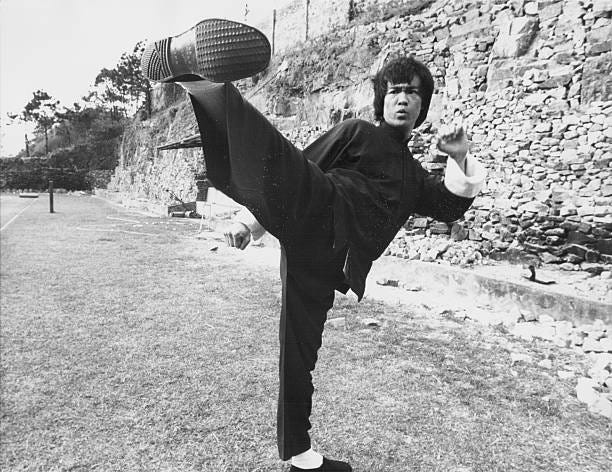
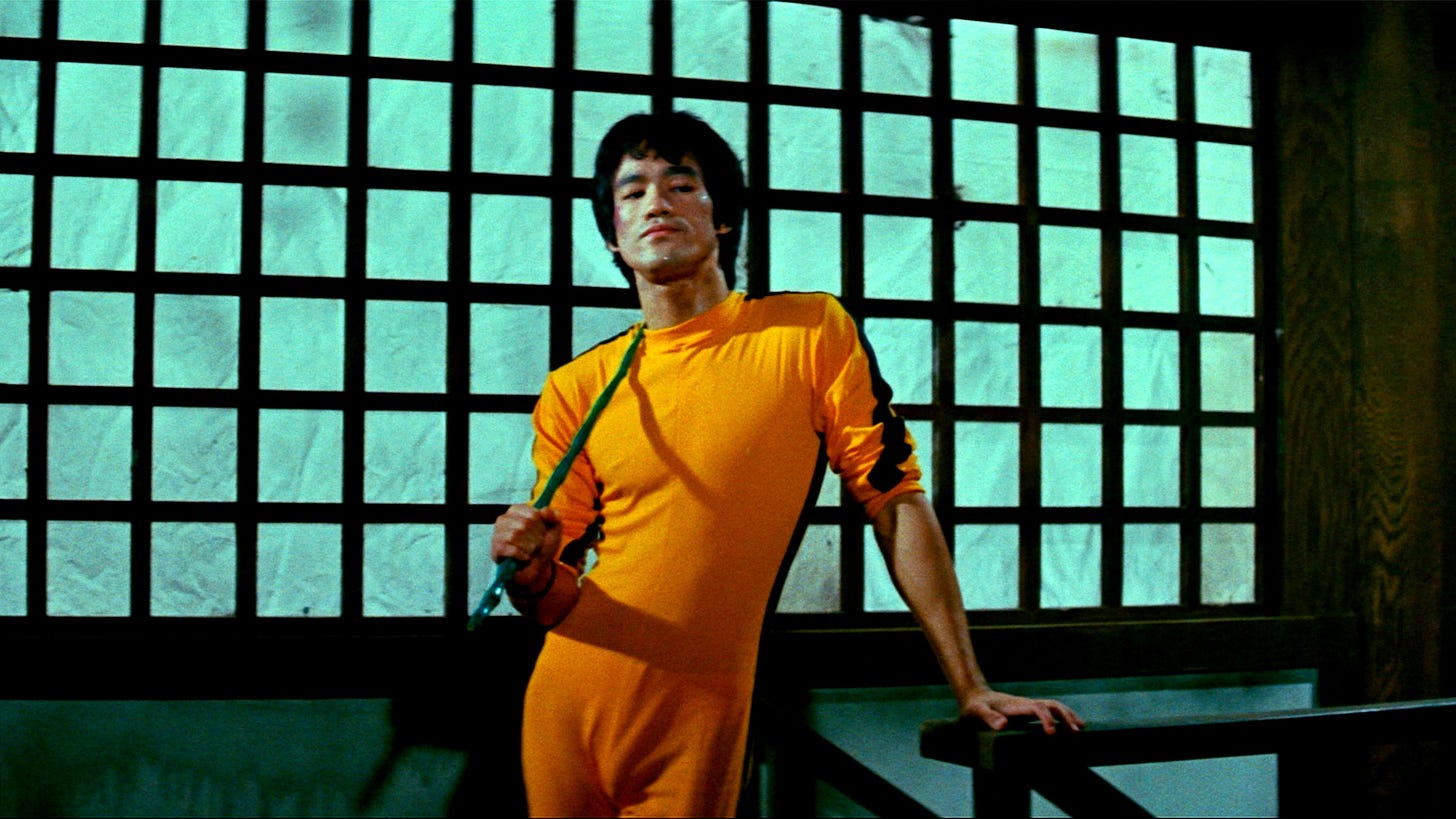
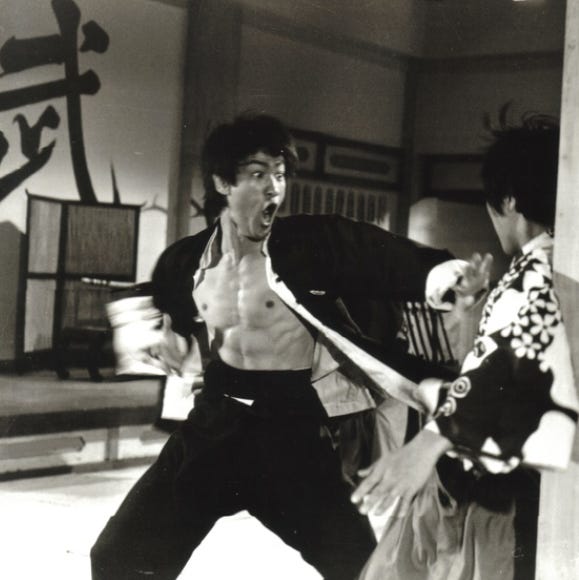
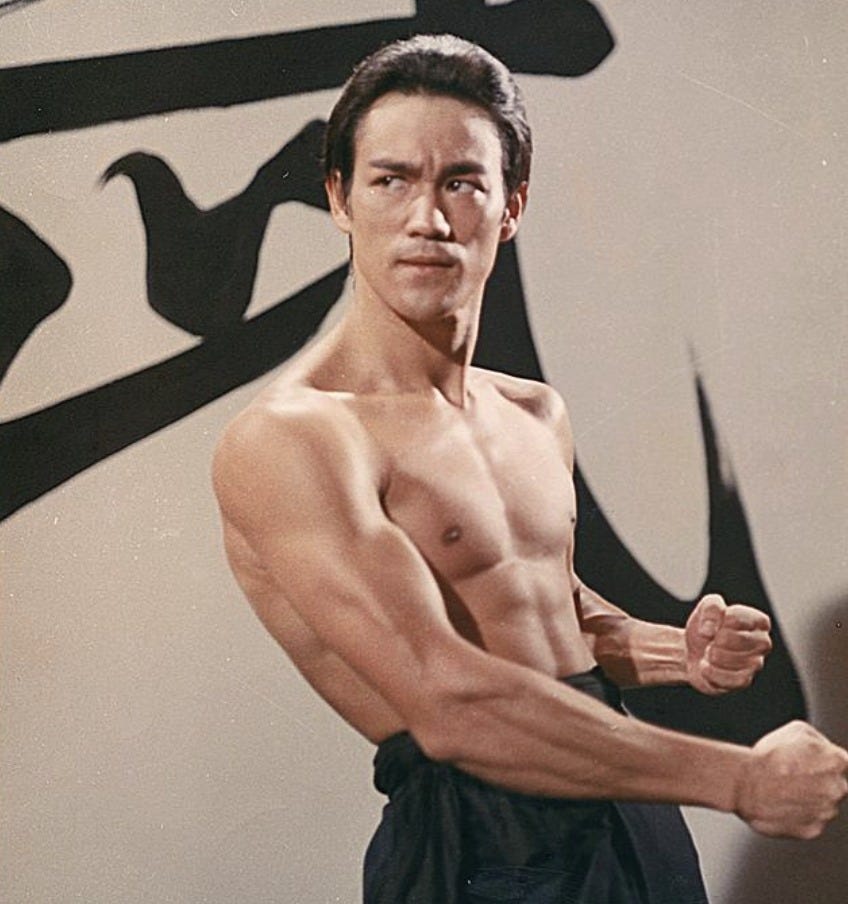
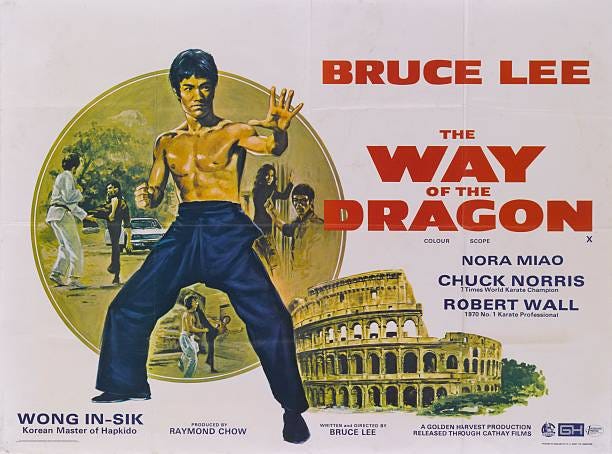
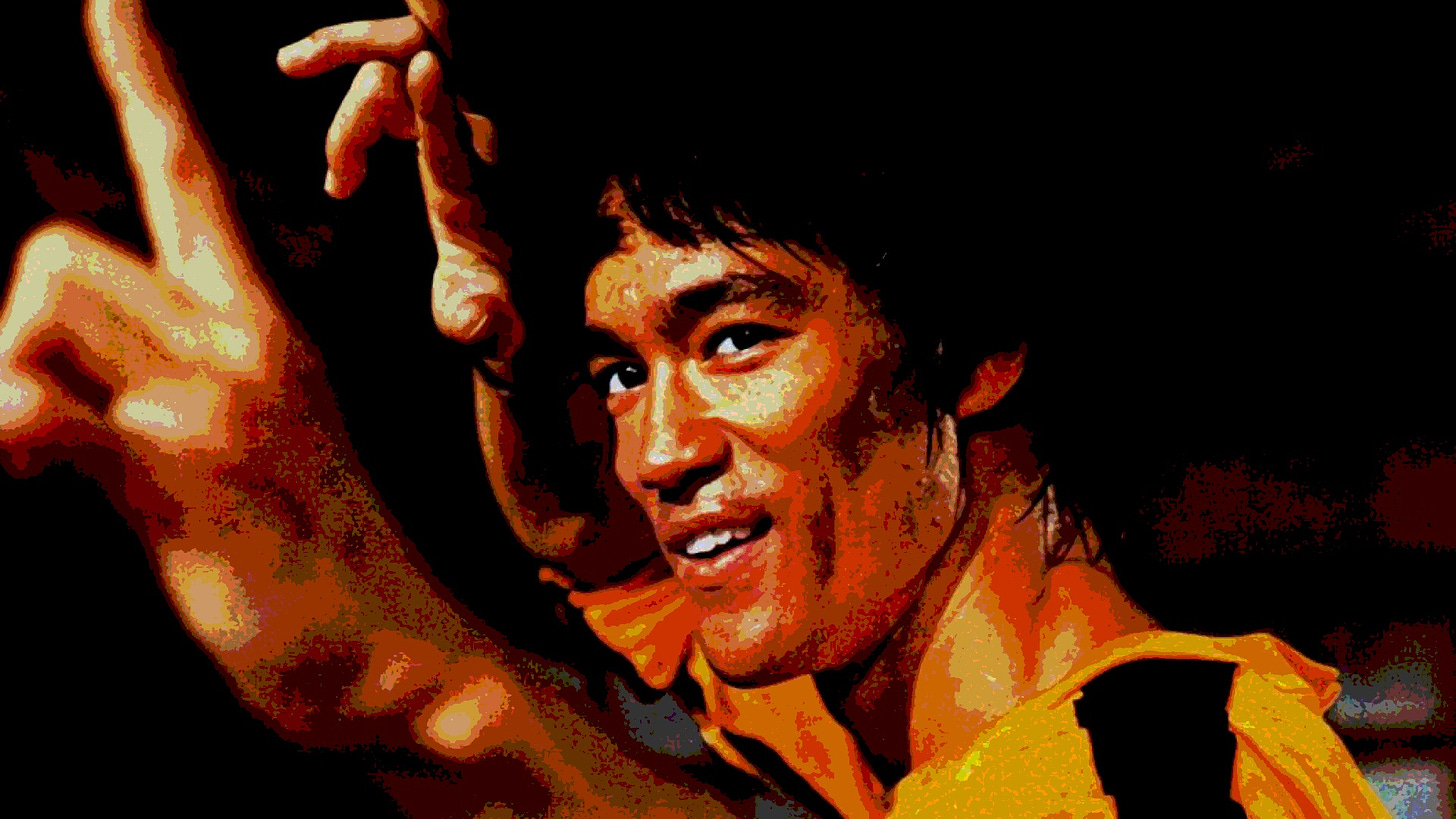
Reminds me of a story my father told me about himself, as a young “John Wayne” city cop full of piss and blood, ready to take on the world. He got his ass kicked on duty by a civilian/perp about his own size and was lucky he didn’t get killed. He said he became a better cop that day, and changed the way he went about his business. He learned to talk quietly in tense situations to bring the tone down and let everyone know he wasn’t afraid (even though he was always expected things to south). And he treated everyone he encountered, the good and the bad, as equals and with respect. Change is always good.
I read the Tao of JKD twice, both times at turning points. Lee's philosophical pragmatism, humility and discipline impressed me greatly. He came up with a true tao. Wing Chun seems like an ideal cornerstone for building that; a good way to find out what you don't know.